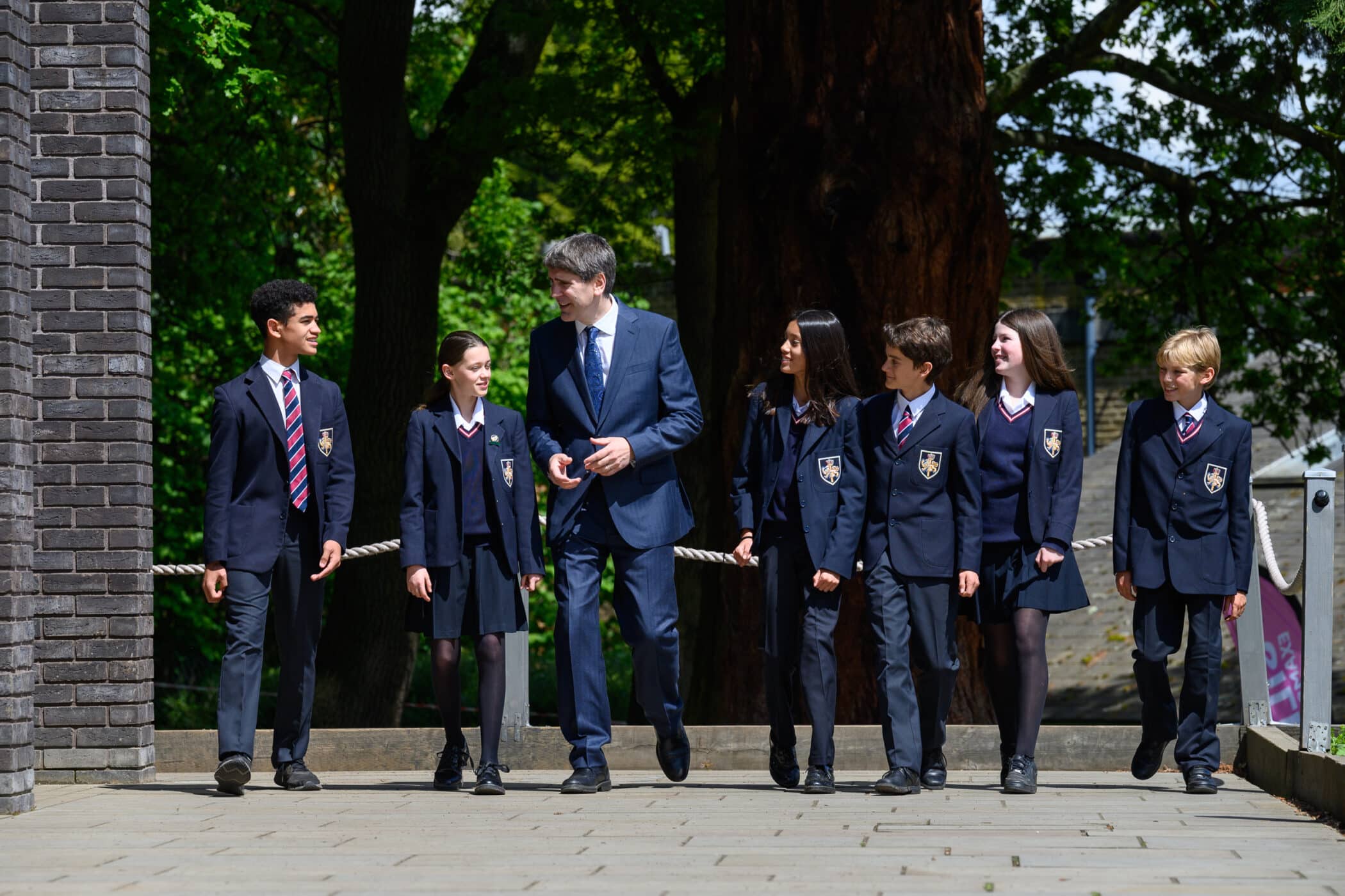
Heads' blog
·17 October 2023
As I considered what to write for this month’s blog, starting as it does just ahead of the Queen’s Jubilee celebrations, I decided that there could be little better role model for the subject of enthusiasm than our monarch. Now a ninety-six year old lady, she continues to work and offer service in the same position which she has held for seventy years. From time to time, one imagines that her enthusiasm – that is her emotional responses to her role – must have wavered, yet her motivation and sense of duty always prevailed. On our bookshelf at home we have a copy of John Burningham’s England, and within that book there is an extract from the Queen’s Christmas message broadcast in 1985, part of which reads as below:
‘I believe it is a time to look at the good things of life and remember that there are a great many people trying to make the world a better place, even though their efforts may go unrecognised. There is a lesson in this for us all and we should never forget our obligation to make our own individual contributions, however small, towards the sum of human goodness’
These words, made just short of half way through the Queen’s reign, remain equally valid today and talk to me of the need for us all to keep our motivation and enthusiasm to make small differences high.
Enthusiasm is of course closely linked to excitement – the temporary emotion we experience that begins in the brain but may extend to butterflies in the stomach, sweaty palms and breathlessness; it inspires us to engage passionately with the world around us. A study by the Harvard Business Review found that ‘Of all the things that can boost emotions, motivation, and perceptions during a workday, the single most important is making progress.’ Furthermore, the study concluded that even the smallest of wins could promote a sense of well-being and make a difference in terms of future performance. Consider the concept of win streaks in games and the impact they have on securing the motivation of individuals to continue to engage with said games, or the purchases generated by the excitement of limited season products, and imagine this applied to learning in the classroom.
Indeed, the psychology of enthusiasm is woven throughout the classroom: from star charts for toddlers, through to attendance awards, house point lapel pins, celebration assemblies and so on, we see daily the effect that recognition of progress has on the self-esteem and motivation of our pupils. But beyond this, the co-curricular experiences where children might discover success in unusual settings and situations further serve to generate that bubble of excitement which, over time, builds the belief that effort and individual contribution does lead to recognition, thus equipping our pupils with both the motivation and enthusiasm to strive for success, without any perception of limit to their potential.
Excitement has certainly been high in the car park over the last few weeks as our Prep pupils have set off for their residential trips and our Seniors are equally eagerly anticipating their enrichment week, in the latter half of the term. School plays, fixtures, sports days and even examinations offer the chance to demonstrate and celebrate progress. Providing enthusiasm for life beyond excitement in the moment, it is an absolute pleasure to see the return of these events to school calendars and the opportunity that they offer for young people to practise making small, individual differences as they face new challenges.